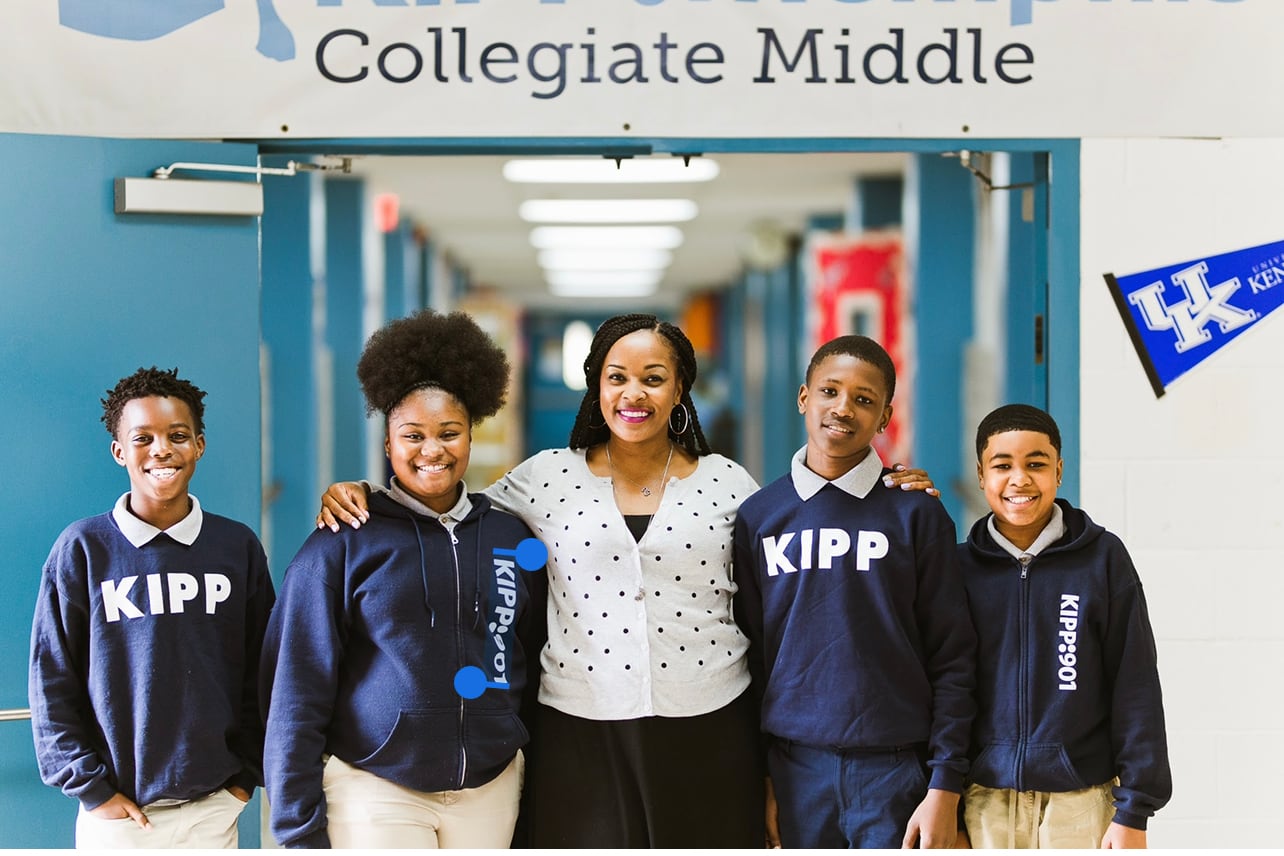Some families are related by blood, and other families, like the team at KIPP Memphis Collegiate Middle School, form because of a shared connection. Natasha Smith, the school’s assistant principal, says she considers her co-workers and students her family because they stand together or are “ten toes down for each other.”
Smith earned her administrator’s license in 2010, but before she became a school leader, she was a science and math teacher and has now worked as an educator for nearly two decades. This year Smith hired one of her former students as a teacher.
“It made my heart full because I remember just like it was yesterday when she was in the hallways doing the same thing that the students are doing now. We went through the ups and downs of teacher and student interactions,” said Smith. “I feel like this is my child that is now a teacher; this is how I feel when I see her every day.”
Smith, who has degrees in social work and education, spoke recently with Chalkbeat about how she builds and maintains strong bonds with colleagues and students and how the school has worked to boost attendance during the COVID years.
This interview has been lightly edited for length and clarity.
What motivated you to pursue a career in education?
I was the first person in my family to go to college. I received my undergrad degree in social work at the University of Tennessee at Martin. I became a social worker because I enjoy helping others and making a difference, but I wanted to take it a step further and decided to go back to school and receive a degree in education at Freed-Hardeman University. That was about 16 years ago, and I’ve been in education ever since.
Do you have any advice for those who want to pursue a career in education?
The most important thing for an educator, whether you are a leader in school, teaching students, or in any capacity where you work in a school, is to build relationships. Building relationships with students, families, and staff goes a long way. I’m very dedicated to building relationships.
At KIPP, we believe in the family aspect. Me and my co-workers will go out and have dinner together. We treat our students like they are our own kids. I call every child my sweet child. The entire staff has that same love for them. That is what makes our school a second home for our students.
What impact has the pandemic had on the classroom?
One thing we are working on is retaining teachers. COVID has really affected us. Students that were learning online and are now back in school have fallen behind. Cases are still continuing, so we still do COVID tests. We’ve helped by sending packets for students that cannot come to school. We’ve raised money and sent food to families. To increase our attendance, we do a lot of activities to keep our families in the building — like pajama day or read-a-thons.
What are some of the hardships about your job?
You know, dealing with the socioeconomic status of this neighborhood, dealing with the deficits that our students are dealing with, of course, those are all things that are difficult, but again, they’re not impossible.
Where do you see your school in the future?
I see my school being a place where kids want to learn and grow. A place where there is love and progress and a place where kids want to come to. Also, a place where staff members stay.
What is one of the things you love about your job?
The people. I could not get through this without them. We are so tight-knit. We have shirts that say we are “ten toes down for each other.” We help each other get through anything, whether it be personal or work-related. We are definitely a team and family.





